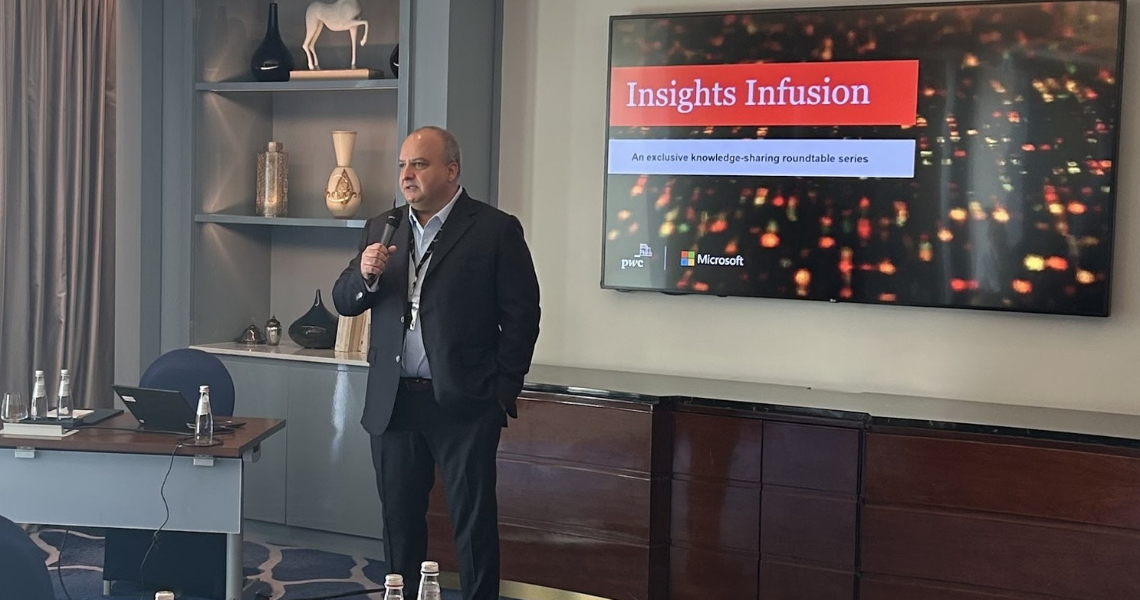- The session focused on enhancing cybersecurity and data protection measures, in line with Qatar’s National Cybersecurity Strategy 2024-2030
- PwC and Microsoft are combining their capabilities to empower clients with the tools and strategies needed to mitigate risks and thrive amid Qatar’s digital transformation
PwC Middle East in collaboration with Microsoft Qatar, held an interactive roundtable focusing on cybersecurity and data protection measures for public and private sector entities including AI in cyber security. This event comes during Global Cybersecurity awareness month. The discussion emphasised that robust cybersecurity, coupled with advanced digital infrastructure and a stable regulatory frameworks are essential to achieving Qatar’s National Vision 2030 goals and the recently announced National Cybersecurity Strategy 2024-2030.
The discussion entailed topics around the pace of cloud adoption warranting the need for robust cybersecurity measures, compliance with data privacy regulations, and the integration of advanced technologies to ensure secure data transfer across borders and industries.
With the growing adoption of cloud in the country, cloud security becomes of paramount importance to adopt it safely and securely. Cloud introduces many benefits in comparison to the traditional IT operating models and can also facilitate cyber security governance if done correctly.
The roundtable was led by Omar Sherin, Cybersecurity Partner, and included Dr. Mohammad Alhammouri, Partner, Cybersecurity & Digital Trust at PwC Middle East, and Esan Tabrizi, Customer Transformation Partner from PwC Middle East in Qatar, and Michel Sengakis, Modern work & Cyber Security Lead from Microsoft. The roundtable also featured presentations by industry thought leaders from the Qatari energy sector and they highlighted the role that AI can play in empowering organisations in Qatar to meet complex data security topics. For example, Microsoft's Copilot for Security solution complemented by PwC’s customization and implementation support, augmenting the clients’ ability to predict, prevent and rapidly respond to any security threats.
Omar Sherin, Cybersecurity Partner at PwC Middle East in Qatar, said: “The recently introduced National Cybersecurity Strategy reflects Qatar’s broader vision to secure and enhance its digital transformation journey. Qatar is enjoying a world class telecommunication infrastructure and managed to attract some of the leading technology and cloud services providers to the local market.”
He continued, “Together with our partner Microsoft, we are delivering tailored solutions that meet the needs of our clients, enabling them to thrive in Qatar’s digital landscape.”
Michel Sengakis, Modern Work & Cyber Security Lead, said: “Cybersecurity must now be integrated into every aspect of a business rather than treated as a separate function. To fully harness its potential, all business functions, including cybersecurity, need to collaborate using a holistic approach. Our partnership with PwC will equip our customers with strategies to confidently advance their digital transformation.”
In Qatar, PwC and Microsoft have jointly engaged in several strategic national initiatives, leveraging PwC’s unique omni-channel accelerators focused on service digitisation and process automation. This joint offering ensures that customers are able to leverage PwC’s industry focused solutions built on top of Microsoft’s Azure Cloud infrastructure.
As the country continues its journey towards becoming a knowledge and innovation hub in the region, the PwC and Microsoft partnership in Qatar will continue to drive economic growth, upskill the workforce and provide a foundation for the Country in line with the Qatar National Vision 2030.



